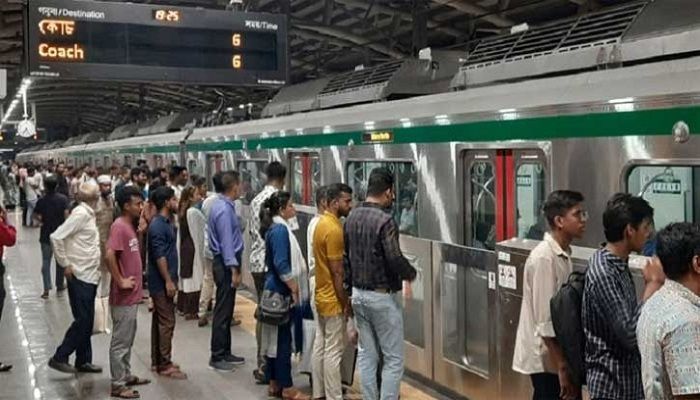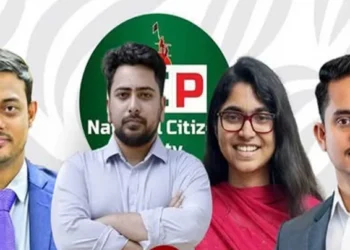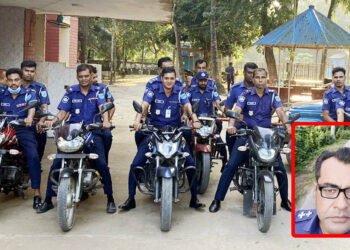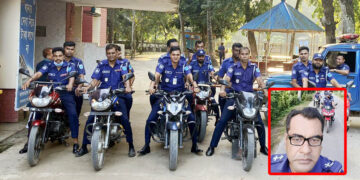Dhaka metro rail is preparing to introduce a Universal Ticketing System (UTS) that promises to revolutionize how passengers pay their fares. The new system will allow commuters to use debit and credit cards, along with mobile banking apps, to pay for single-journey tickets are dramatically expanding fare payment options and reducing commuter hassles.
The implementation, overseen by Dhaka Mass Transit Company Limited (DMTCL), is expected to take approximately six months, according to officials. This period will include tender processes, machine installation, and system integration across stations.
What’s Changing?
Currently, metro fare payments rely on a closed-loop system that only supports specific cards produced by Japan’s Sony Corporation is namely the MRT Pass, Rapid Pass, and single-journey tickets. These cards often fall short in supply, forcing passengers into long queues or dealing with card errors during commutes.
With UTS, passengers will soon be able to:
-
Tap debit or credit cards directly at station entry points.
-
Buy single-journey tickets via mobile financial apps like bKash or Rocket.
-
Receive a QR code on their phone after payment, which can be scanned at entry and exit points—eliminating the need for physical cards.
“Passengers will no longer have to stand in long lines just to recharge or purchase a card,” said Faruk Ahmed the Managing Director of DMTCL. “As we introduce these new payment methods, we are also aiming to reduce card supply issues and enhance convenience for all passengers.”
How Will It Work?
The Universal Ticketing System won’t require upfront investment from DMTCL. Instead, a private contractor will be appointed to:
-
Install hardware and software across all metro stations.
-
Maintain and operate the new system.
-
Receive a percentage of ticket revenue as payment (to be determined based on bids).
A preliminary tender has already been issued, with around 30 companies expressing interest. The next stage involves collecting technical and financial proposals.
Addressing a Growing Problem of Dhaka Metro Rail
With the full metro line now running between Uttara and Motijheel, demand for MRT and single-journey cards has skyrocketed. Early supplies included 728,000 MRT cards and 313,000 single-journey cards, but these have been rapidly exhausted.
Read More: Bangladesh Considers Backup Plan for Oil Import If Hormuz Strait Is Closed
To bridge the gap, DMTCL has placed an order for an additional 400,000 single-journey cards, of which 200,000 have arrived. However, passengers have long complained about the shortage, often finding themselves unable to purchase or recharge cards during peak hours.
“There’s nothing worse than passengers wanting to pay but being unable to get a card,” said Dr. Shamsul Haque, a civil engineering professor and transportation expert at BUET. “This new system—if implemented properly—will greatly ease that burden.”
A Global Standard for Smart Travel
Countries like India, Singapore, and Hong Kong have already adopted similar systems, allowing for multiple fare payment methods that are faster, safer, and less dependent on limited resources.
Once rolled out, Dhaka’s metro stations will be equipped with machines capable of reading a wide range of cards and mobile-generated QR codes. This will bring Bangladesh closer to the standards of modern, contactless urban transport systems seen in developed nations.
Benifits:
-
Faster boarding with card tapping or mobile QR code scanning.
-
Less queuing for tickets or recharge at station counters.
-
Expanded payment options, including mobile banking and all major cards.
-
10% fare discount remains applicable for MRT or Rapid Pass users.
-
No more reliance on physical cards alone, which are prone to malfunctions or scarcity.
With about 55% of passengers currently using MRT or Rapid Passes, and the remaining 45% relying on single-journey cards, the introduction of UTS is set to significantly ease congestion, particularly during rush hours. It’s also expected to improve fare collection efficiency, reduce operating burdens on staff, and enhance the overall commuting experience.
DMTCL emphasizes that while the new system will enhance digital fare processing, existing methods will continue to function for those who prefer them.
As Bangladesh’s capital continues to grow into a bustling megacity, the metro’s modernization through digital ticketing is a timely upgrade is ushering in a more resilient, efficient, and commuter-friendly transport system for the future.
Share via:


















